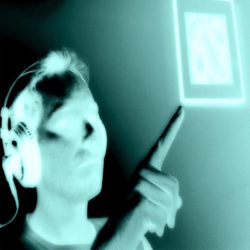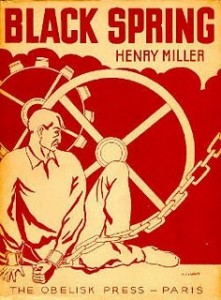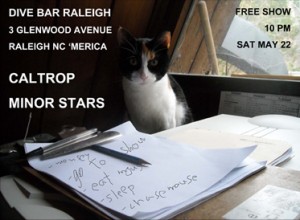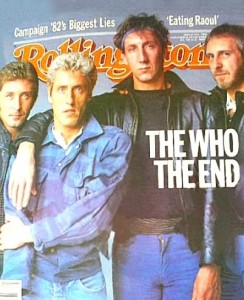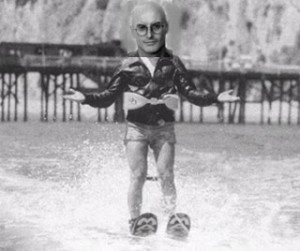 Yeah, I know, that’s a pretty lame Wilber/Fonzie photoshop job, but I couldn’t resist. And I want to make clear right from the start that Ken Wilber has authored several of my all-time favorite nonfiction books. I dig a lot of his work and use his “four quadrants” to frame my own understanding of Integral Health. I remember reading Wilber’s Sex, Ecology, Spirituality and thinking to myself, “This guy is the shit!” Yesterday, however, after reading Wilber’s latest blog post (A Narrative on Guruji), I couldn’t help but think, “This guy has lost his shit!”
Yeah, I know, that’s a pretty lame Wilber/Fonzie photoshop job, but I couldn’t resist. And I want to make clear right from the start that Ken Wilber has authored several of my all-time favorite nonfiction books. I dig a lot of his work and use his “four quadrants” to frame my own understanding of Integral Health. I remember reading Wilber’s Sex, Ecology, Spirituality and thinking to myself, “This guy is the shit!” Yesterday, however, after reading Wilber’s latest blog post (A Narrative on Guruji), I couldn’t help but think, “This guy has lost his shit!”
The first thing that struck me as odd about Wilber’s post was the style of presentation, which was riddled with rambling redundancies, poor reasoning, and flat-out bad writing. This from a man capable of exquisitely lucid prose. Now, maybe he meant it as an off-the-cuff type of thing and I’m being a bit unfair, but this is a guy who rarely posts on his own blog, so I was surprised he’d go on record with this scattered post. Then there’s the content of the post, which is a strong public endorsement of a spiritual teacher named Mahendra Kumar Trivedi. From Wilber:
What I am claiming—and supporting—is that Guruji’s capacity to conduct and transmit universal spiritual energy (or “shakti”) is utterly remarkable, as proven by scientific experiments themselves. It is these direct, specific, scientific experiments and their results that I am reporting, and on which I am basing my endorsement. This is a scientific conclusion, not a spiritual one (although, of course, you are free to make those as well—but I am reporting the direct science, which is indeed astonishing).
[…] To put it briefly, Mr. Trivedi has an empirically demonstrated capacity to alter the atomic and molecular structure of phenomena simply through his conscious intentionality. The number of experiments done on this capacity (known in Sanskrit as shaktipat) that have been done in coordination with Mr. Trivedi is quite extraordinary—so far, over 5,000 empirical studies by universities and scientific research organizations all over the world (including the world renowned materials scientist Dr. Rustum Roy at the University of Pennsylvania).
Wilber takes great pains to stress that he’s basing his endorsement of “Guruji” (as he is affectionately known) on SCIENCE: “the reason is based entirely on direct, specific, scientific evidence. This evidence is so astonishing that I myself have never seen anything quite like it.” In fact, Wilber drives this point home at least a dozen times in his fairly short post. When I went to Trivedi’s website to check out the evidence, I found plenty of information and claims, but not a mention of peer-reviewed evaluation of results or independent research corroborating the findings. I would expect a scientifically-based endorsement to have higher standards, although as a non-scientist myself, I confess I am not qualified to pass authoritative judgment on such matters. Wilber seems to have a lot of confidence in the conclusions of one researcher in particular, the “world renowned” Dr. Rustum Roy. It should be noted, however, that Roy, like his associate Deepak Chopra, is not exactly lauded by mainstream scientists, as I’ve seen his name (perhaps unfairly) paired with words like “woo” and “pseudoscience” on more than one occasion (for instance here and here). Of course, there are plenty of science-based crusaders out there who would tear me apart, along with many of my intellectual heroes, so that kind of criticism in-and-of-itself doesn’t put Wilber’s endorsement on shaky ground. Rather, it’s Wilber’s credulity and weak justifications that have me scratching my head, and even cringing in embarrassment at times.
For example, Wilber offers this: “Especially if you see photos of these results, you can’t help but be struck by the rather intense capacity for this transmission demonstrated by Guruji.” Really? Photos on the internet? Wilber seems to be all-too-willing to validate anything and everything that supports his own view of the universe. We all do this, of course, but we’re not all hailed as “the Einstein of consciousness research.” And Wilber seems also to be all-to-willing to indulge in highly speculative conclusions based solely on the alleged abilities of a single man:
Several of us have been predicting for some time that a significant new transformation is beginning on Earth at this time. Various psychological tests and sociological indications tend to show that there is the beginning emergence of a new type of consciousness. […] It might be that the Energy that Guruji is working with is the energetic support or correlate of this new Integral transformation. And that’s really pretty extraordinary. It’s pretty amazing that that might be happening.
And:
The point is that various psychological and sociological tests have verified the emergence of a new level of consciousness-again, one generally referred to as ” integrative” or ” integral.” In other words, this is not just some hair-brained academic theory, but a reality disclosed by specific testing. What hasn’t been disclosed is the new Life Energy that would be expected to underlie this new level of consciousness (what Integral Theory calls the Upper-Right quadrant aspect that would correlate with the newly emergent Upper-Left quadrant reality). But it is this new Integral energy that seems to be what Guruji is transmitting.
Notice Wilber’s highly dubious claim that “various psychological and sociological tests” have verified his theory of integral consciousness to the point of disclosing it as reality. It’s no wonder, based on that kind of flimsy reasoning, that Wilber would so readily endorse Trivedi as the real deal. The fact that a real scientist (Rustum Roy) affiliated with real universities supports Wilber’s thinking seems to be all the scientific confirmation Wilber needs to (tentatively) verify as real and true another brick in his Great Wall of Integral Theory. Throw in a little circular logic, and there’s nothing likely to keep Wilber from moving from tentative acceptance to total acceptance in the near future:
Guruji says that individuals have to be open for this, and I think that’s exactly right. You can’t force people to be free. It’s a choice they have to make, if they have evolved enough. Not even God can force a human to be free. That would just defeat the whole purpose. So whatever percentage of people are actually open to this-ten percent, twenty percent, fifty percent, whatever-we’ll find out. But if there is a really strong doubt and negativity, then it doesn’t surprise me that this transmission doesn’t have a chance. So right now we’re waiting to see the percentage of people that can become open to this type of transmission.
This is becoming an all-too-familiar gambit in Integral circles, that you have to be “evolved enough” to really grasp the truth of what Wilber claims. Furthermore, if Trivedi’s super spiritual transmission can’t transmit through doubt and negativity, then why even bother putting it through the rigors of scientific confirmation and peer review? Too bad we can’t all be like the open-minded plants that Trivedi has blessed into realignment with the new Earth Energy!
It’s not as if Trivedi is the first person on the block with supposed mystical super powers. What about John of God and Sathya Sai Baba? Many claims have been made, yet James Randi’s One Million Dollar Prize
for “anyone who can show, under proper observing conditions, evidence of any paranormal, supernatural, or occult power or event” has yet to be claimed.
Ken Wilber has contributed much to the advancement of integral, integrative, holistic approaches to life’s most intractable challenges. I don’t want to diminish that fact with this rant. But I’m frustrated. I’ve been trying to make the case to mainstream mental health professionals and health educators that Wilber’s work should be taken seriously. This is already an uphill battle, given the New Age label that is often associated with Wilber’s writing and his institute. But add to that the whole Wyatt Earpy episode, Wilber’s endorsements of ethically suspect individuals like Andrew Cohen and Marc Gafni, and now this latest Guruji head-scratcher, and I’m not sure I should be taking him seriously anymore.
Earth (Energy) to Ken: Please start making sense again!

